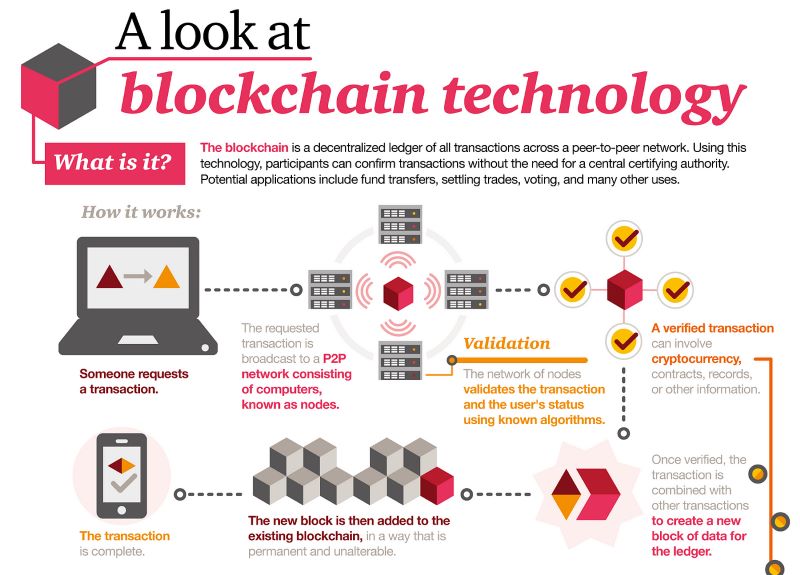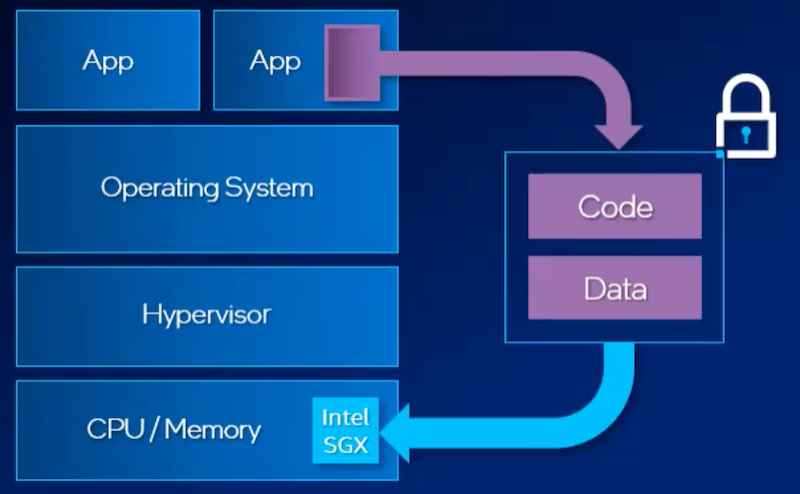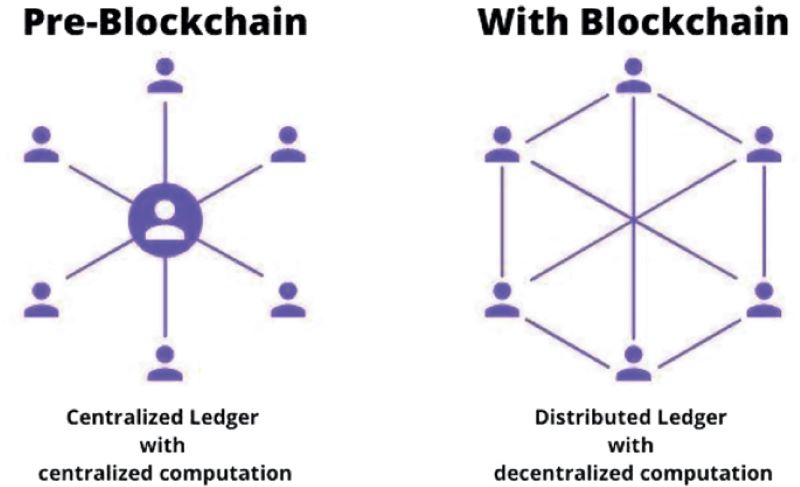Proof of Elapsed Time in Crypto: Revolutionizing Blockchain Security?
Blockchain buffs, perk up! We’ve seen tech like Proof of Work guard our crypto trades, but talk about energy-hungry! Enter Proof of Elapsed Time in Crypto, a smarter bouncer at the blockchain party. It’s not all brawn; it’s also brain, using a clever timing method for deciding who adds the next block without guzzling energy. If you think reliable crypto security is about burning watts like a Christmas tree, then gear up for a shift that could make your electric bill—and the planet—breathe easier. Lean in as we unpack how this new kid on the block could make waves in how we trust and transact in the crypto world.
Understanding Proof of Elapsed Time (PoET) Consensus
The Mechanism of PoET and Its Integration into Blockchain Systems
Let’s dive into how PoET works and why it’s key in blockchain. Imagine all the computers in a blockchain network are in a big race. They all want to add a new block of info. In many networks, it’s like a lottery. The winner gets to add the block and earns some digital coins.
But, it’s not so simple. We have to keep it fair. Here comes PoET consensus to the rescue. It’s like a fair lottery where everyone waits their turn. The PoET system tells each computer, “Wait a set time.” When that time’s up, they can try to win the chance to add a block.
How is this time set? Well, it uses a trusted system called Intel SGX. It keeps the lottery safe from cheating. Intel SGX is a set of code that computer chips use. It makes sure no one can game the system.
With PoET, each computer in the blockchain network gets a random wait time. The one with the shortest time wins the right to add the block. No need for complex problems like in proof of work. This makes PoET less of a power hog and more energy-efficient.
Intel SGX: The Security Backbone of PoET
So, we now know that PoET uses random time-waits to keep things fair. But how can we be sure these times are truly random? That’s where Intel SGX steps in. It’s like a super secure space in the computer’s brain. Here, the random times are created away from prying eyes or hackers.
Intel SGX works with special computer chips. These chips have a trusted execution environment or TEE. This is a safe zone where no sneaky malware can peek. It’s like a VIP room where sensitive stuff happens.
Now, for blockchain, this is super cool. It means with Intel SGX, we can trust PoET to not let anyone cheat. It’s like having a referee nobody can bribe.
PoET and Intel SGX together make sure blockchains work smooth. They keep them safe and energy happy. This is all part of making sure we can trust the blockchain with our data and money.
In summary, PoET is a smart way to keep blockchain fair and green. Using Intel SGX makes sure PoET runs without a slip-up. It’s like having the best security guard for our digital stuff. This combo is changing how we do blockchain, making it better for all of us.
The Benefits of PoET in Blockchain Technology
Energy Efficiency: A Comparison with Proof of Work
Let’s talk about saving energy. We all know it’s important. In crypto, Proof of Work, or PoW, is like a gas guzzler—eating up lots of energy. Here’s where Proof of Elapsed Time, PoET, comes in. It’s like a bike for the blockchain. It uses way less power. How? Well, it’s simple. PoW makes computers solve hard puzzles. It takes tons of energy. PoET, on the other hand, just uses time to pick who adds to the blockchain. And here’s a cool part: we use Intel SGX in crypto to make sure it’s all safe and sound.
PoET does not make machines work hard. Instead, it gives them a random wait time. After waiting, they can make new blocks. This means less electricity, which is great for our planet. Less work for the computers equals more energy savings, and that’s awesome.
PoET’s Role in Enhancing Blockchain Security and Node Validator Selection
Now let’s dive into keeping everything secure. PoET keeps the blockchain safe in a smart way. How, you ask? Well, it picks the block creators fairly, by time. It makes sure no one cheats the system. Trusted execution environments, or TEEs, are the heroes here. They help in checking the time without lying. So, every player in the game of crypto follows the rules.
When it comes to picking who adds the next block, PoET’s like a good referee. It uses a sort of lottery, but with time—no guessing numbers here. And remember our friend the TEE? It’s the one that says, “Yep, you waited long enough, you can add a block now.” This way, the smaller guys get a fair shot, not just the big players with more power.
Being fair in who can add to the chain is top-notch for security. Plus, it’s good for everyone. Fair chances mean people stay interested. And when many people take part, the blockchain stays strong and secure. We call this Byzantine Fault Tolerance. It means even if some folks are up to no good, the blockchain still works fine.
But wait! There’s more. PoET is not just about being fair and saving energy. It also helps the blockchain grow without a hitch. That’s super important as more people use it. And everybody wants their crypto stuff fast. PoET is great at making sure this happens, making it all run smooth and speedy.
So, think of PoET like the quiet kid in class who does amazing things. It’s not showing off with fancy stuff. Instead, it keeps its head down and does a killer job making blockchain better for us all. I say, keep an eye on PoET—it’s changing the game in a big, big way.
The Technical Foundations of PoET Implementation
Trusted Execution Environments and Their Importance in PoET
Trusted Execution Environments, or TEEs, keep your blockchain safe. These are like secret rooms where sensitive tasks happen away from prying eyes. PoET uses these rooms to make sure everything runs smoothly and no one cheats the system.
With PoET, every participant gets a random wait time in a TEE. This way, they can’t fake the wait and take over the blockchain. It’s like giving everyone a locked stopwatch that only the TEE can unlock. This ensures fairness in the crypto world.
Intel SGX is a kind of TEE that PoET often uses. Think of it as a superhero shield for data. It helps keep the bad guys out and the good stuff safe. You need TEEs like Intel SGX to make sure PoET works right.
TEE ensures the blockchain plays fair. It checks everyone’s work without spilling any secrets. This helps make PoET blockchain technology strong and trusty.
Scalability Challenges and Solutions within PoET Blockchain Networks
Growing a blockchain can be tough. More users mean more work to keep track of. PoET faces this head-on with some smart moves to stay quick and agile.
Permissioned blockchain networks help PoET to scale well. These networks invite only some users to join. It’s like having a VIP party instead of a huge street festival. Fewer people, fewer problems.
PoET is also energy efficient, which means it doesn’t need as much power to grow. This is a big deal when you compare it to proof of work. Proof of work eats up a lot of juice, like a hungry monster. PoET, on the other hand, is more like a light snack.
But even with these perks, PoET needs to make sure it can handle a big crew. Keeping a close eye on how fast blocks get made and how nodes keep up is key. Also, using fancy math like verifiable delay functions helps with blockchain time verification. It’s like setting an egg timer for each block to make sure no one jumps the line.
With these tools, PoET keeps the blockchain running smooth and quick, no matter how many people join the party. Nifty checks and balances keep things tuned just right, so everyone plays fair and the network zips along. This makes PoET not just safe, but also ready for the big league.
The Future of PoET in Decentralized Networks
The Evolution of Consensus Algorithms and PoET’s Efficiency
Think back to the old ways of trading and how trust was key. Now, in the digital world, we still need trust, especially in crypto. It’s like a big puzzle where we all agree on who has what. PoET is here to help with that. It’s like having an honest timekeeper in a race, making sure everyone plays fair.
People ask, “What makes PoET stand out?” It’s simple yet smart. It uses time to pick who adds the next block of info to the blockchain. Each computer gets a random wait time. When their time’s up, they can add a block. This levels the playing field because it’s not about how powerful your computer is.
Why is PoET a big deal? It uses less energy than older methods. It doesn’t need super powerful computers that eat up a lot of electricity. This makes it cheaper and greener. PoET is also secure. It uses Intel SGX, which is like a safe in your computer. Only you have the key, and it makes sure the race is fair.
PoET is like a helper that makes sure everyone follows the rules in blockchain. It gives everyone a fair chance to join in, without needing fancy gear. It keeps our digital trust world safe and fair for all.
Ensuring Fairness in Cryptocurrency Mining and Maintaining Chain Integrity through PoET
Let’s talk about fairness in cryptocurrency mining. It used to be that the more powerful your computer, the more crypto you could mine. It was like a race where some folks had faster cars. PoET changes that. It’s like giving everyone the same type of car, so the race is fair. No one gets to jump the line.
How does PoET do that? It uses a lottery system. But instead of picking a ticket at random, it waits for a secret timer to finish. The timer is different for every computer. Whoever’s timer ends first gets to mine. This way, everyone has the same chance to win.
Also, PoET keeps the blockchain true and unbroken. It’s like a hall of records that’s super safe, thanks to special tools like Intel SGX and trusted execution environments. They work together to make sure no one cheats. That’s important because we need to trust that no one is messing with our crypto records.
By now, you can see PoET is cool and fair. It’s key for a future where blockchain is everywhere. It’s not just about being green and saving energy. It’s also about keeping the digital world of crypto honest and fair for everyone. It’s a big step forward in making sure we can all trust in the tech that supports our digital lives.
We’ve learned a lot today about Proof of Elapsed Time (PoET), a smart way blockchains make decisions. It’s not just any method; it’s like a secret agent, called Intel SGX, that keeps things safe. This tech saves a lot of energy compared to the old Proof of Work, and makes sure that picking who adds to the blockchain is super fair and secure.
We also talked about the techy bits that make PoET tick and how it can grow without causing a fuss. And let’s not forget, the future looks bright for PoET! It’s set to make sure mining coins is fair and keeps the whole blockchain honest and strong.
In short, PoET is a big deal for blockchains. It’s like a brainy energy-saver with a black belt in security, and it’s getting better all the time. Cool, right? Keep an eye on it, because it’s changing the game!
Q&A :
What is Proof of Elapsed Time in Cryptocurrency?
Proof of Elapsed Time (PoET) is a consensus mechanism used in blockchain networks to ensure that all participating nodes fairly contribute to the process of creating new blocks. It leverages a lottery system where each node waits for a randomly distributed time period. The node with the shortest wait time gets the right to produce the next block, thus promoting a more energy-efficient system compared to Proof of Work.
How does Proof of Elapsed Time ensure security in blockchain?
Proof of Elapsed Time employs secure cryptographic techniques to ensure that the random waiting times are indeed fair and not manipulable by other participants. A key aspect is the use of secure hardware, such as Intel’s Software Guard Extensions (SGX), to create a trusted execution environment. This approach protects against tampering and helps ensure the integrity of the entire process.
What differentiates Proof of Elapsed Time from Proof of Work?
Unlike Proof of Work, which requires participants to solve complex mathematical problems using substantial computational resources, Proof of Elapsed Time is more energy-efficient as it uses a random timer system for the selection process. PoET’s method reduces the need for high power consumption and gives all nodes a fair chance at block creation without favoring those with more computing power.
Is Proof of Elapsed Time widely used in cryptocurrencies?
As of now, Proof of Elapsed Time is not as widely adopted as other consensus algorithms like Proof of Work or Proof of Stake. However, it is an attractive option for businesses and enterprise solutions that require a more energy-conscious blockchain model, such as Hyperledger Sawtooth, which has implemented PoET.
Can Proof of Elapsed Time be considered a greener alternative in blockchain technology?
Yes, Proof of Elapsed Time is considered a greener alternative because it significantly reduces the energy required to maintain the blockchain network. By using a lottery system based on time rather than computational efforts, PoET minimizes the environmental impact in comparison to the energy-intensive Proof of Work mechanism.



